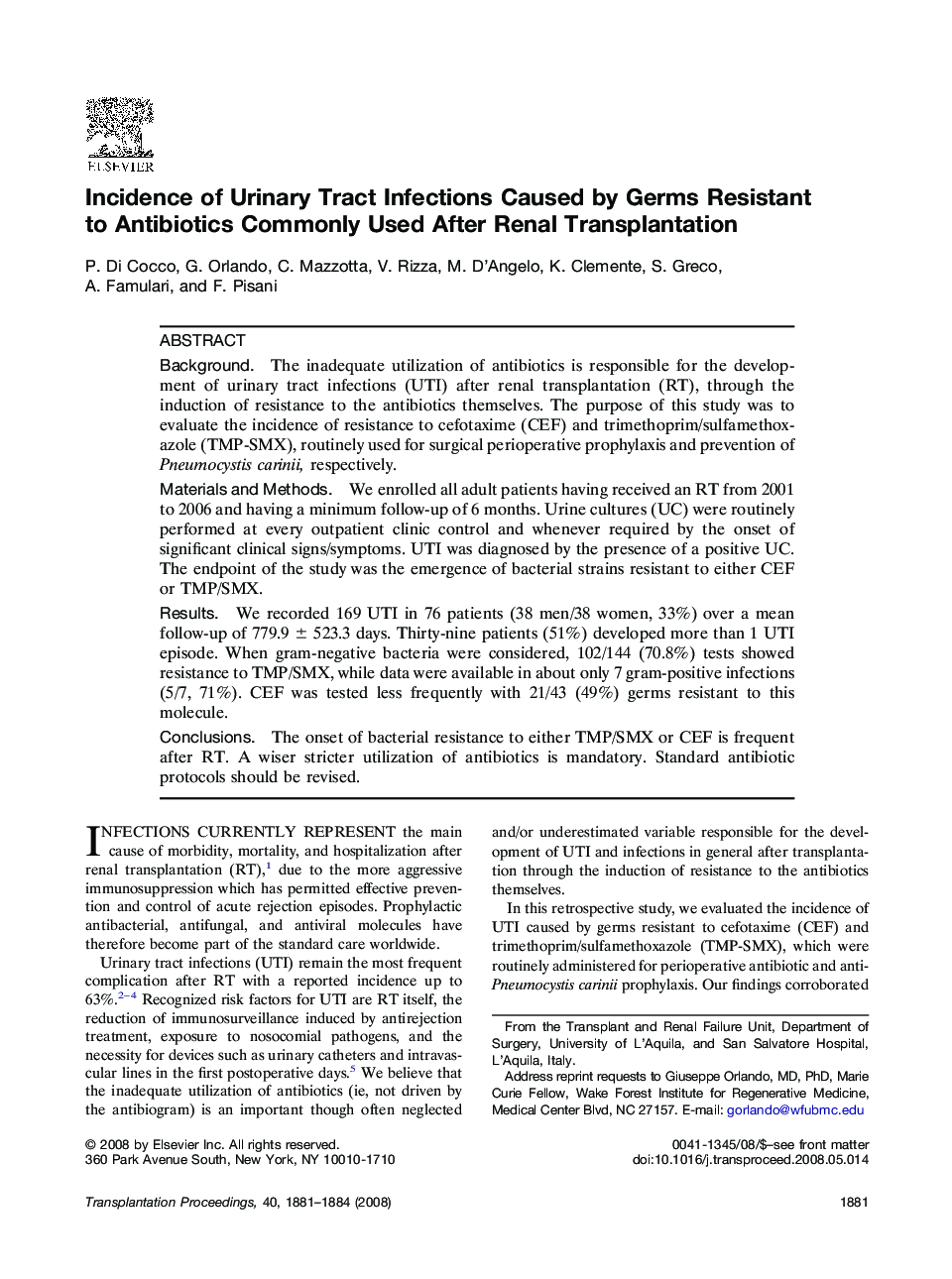| Article ID | Journal | Published Year | Pages | File Type |
|---|---|---|---|---|
| 4260274 | Transplantation Proceedings | 2008 | 4 Pages |
BackgroundThe inadequate utilization of antibiotics is responsible for the development of urinary tract infections (UTI) after renal transplantation (RT), through the induction of resistance to the antibiotics themselves. The purpose of this study was to evaluate the incidence of resistance to cefotaxime (CEF) and trimethoprim/sulfamethoxazole (TMP-SMX), routinely used for surgical perioperative prophylaxis and prevention of Pneumocystis carinii, respectively.Materials and MethodsWe enrolled all adult patients having received an RT from 2001 to 2006 and having a minimum follow-up of 6 months. Urine cultures (UC) were routinely performed at every outpatient clinic control and whenever required by the onset of significant clinical signs/symptoms. UTI was diagnosed by the presence of a positive UC. The endpoint of the study was the emergence of bacterial strains resistant to either CEF or TMP/SMX.ResultsWe recorded 169 UTI in 76 patients (38 men/38 women, 33%) over a mean follow-up of 779.9 ± 523.3 days. Thirty-nine patients (51%) developed more than 1 UTI episode. When gram-negative bacteria were considered, 102/144 (70.8%) tests showed resistance to TMP/SMX, while data were available in about only 7 gram-positive infections (5/7, 71%). CEF was tested less frequently with 21/43 (49%) germs resistant to this molecule.ConclusionsThe onset of bacterial resistance to either TMP/SMX or CEF is frequent after RT. A wiser stricter utilization of antibiotics is mandatory. Standard antibiotic protocols should be revised.
